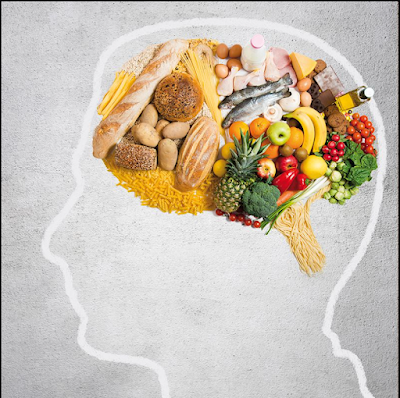Nutrition for a Healthy Body
The Importance of Nutrition
Nutrition is essential for maintaining a healthy body and mind. It helps in the growth and development of our body, provides energy for physical activities, and strengthens our immune system. Proper nutrition can also prevent various diseases and health conditions such as obesity, diabetes, heart diseases, and cancer. It also plays a crucial role in mental health, as it can affect our mood and cognitive function.
Carbohydrates
Carbohydrates are one of the essential nutrients that provide energy to our body. They are found in various foods such as bread, rice, pasta, fruits, and vegetables. Carbohydrates are classified into two types: simple and complex. Simple carbohydrates are found in foods such as candy, soda, and other sugary drinks. They are quickly absorbed by our body and provide a quick burst of energy. Complex carbohydrates, on the other hand, are found in foods such as whole grains, beans, and vegetables. They take longer to digest and provide sustained energy.
Proteins
Proteins are essential for the growth and repair of our body tissues. They are found in various foods such as meat, fish, eggs, and dairy products. Vegetarian sources of protein include beans, lentils, and soy products. Proteins are made up of amino acids, which are the building blocks of our body tissues.
Fats
Fats are an essential nutrient that provides energy to our body. They are found in various foods such as nuts, seeds, oils, and fatty fish. Fats are classified into two types: saturated and unsaturated. Saturated fats are found in foods such as butter, cheese, and fatty meats. They can increase the risk of heart diseases. Unsaturated fats, on the other hand, are found in foods such as nuts, seeds, and fish. They can lower the risk of heart diseases.
The Benefits of a Balanced Diet
A balanced diet that includes all the essential nutrients can provide various benefits to our body. It can improve our overall health and well-being, prevent various diseases and health conditions, and improve our mental health. A balanced diet can also help in weight management, as it provides the necessary nutrients without excess calories. It can also improve our energy levels, as it provides sustained energy throughout the day.
The Benefits of Exercise
Exercise is essential for maintaining a healthy body and mind. It can improve our cardiovascular health, increase our muscle strength and endurance, and improve our mental health. Exercise can also help in weight management, as it burns calories and increases our metabolism. It can also improve our sleep quality, as it reduces stress and anxiety.
The Drawbacks of a Poor Diet
A poor diet that lacks essential nutrients can have various negative effects on our body. It can lead to various health conditions such as obesity, diabetes, heart diseases, and cancer. A poor diet can also affect our mental health, as it can cause mood swings, anxiety, and depression. It can also affect our energy levels, as it provides excess calories without necessary nutrients.
The Drawbacks of Inactivity
Inactivity can have various negative effects on our body. It can lead to a sedentary lifestyle, which can increase the risk of various health conditions such as obesity, diabetes, and heart diseases. Inactivity can also affect our mental health, as it can cause stress, anxiety, and depression. It can also affect our sleep quality, as it reduces our physical activity levels.
FAQ
Q: What is a balanced diet?
A: A balanced diet includes all the essential nutrients such as carbohydrates, proteins, fats, vitamins, and minerals in the right proportions.
Q: How can I improve my nutrition?
A: You can improve your nutrition by consuming a balanced diet that includes all the essential nutrients, drinking enough water, and avoiding processed foods.
Q: How much exercise do I need?
A: You should aim for at least 150 minutes of moderate-intensity exercise or 75 minutes of vigorous-intensity exercise per week.
Q: Can poor nutrition affect my mental health?
A: Yes, poor nutrition can affect your mental health as it can cause mood swings, anxiety, and depression.

